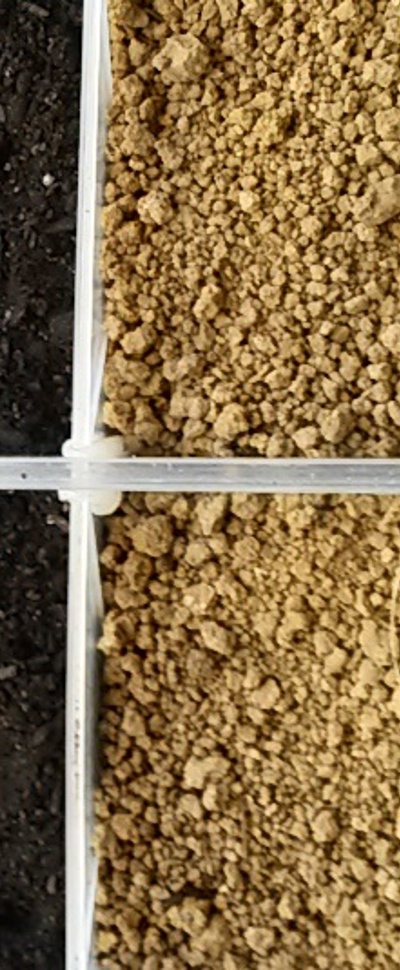
Healthy soils
Healthy soils produce healthy plants
The key to healthy soil is the abundance of life it contains. Each handful of soil should contain billions of microscopic organisms that collectively contribute to a dynamic, balanced ecosystem that supports healthy, vigorous plant growth. Improving soil health can be achieved through the right balance of organic matter, nutrients and a neutral pH level that is neither too acidic nor too alkaline. It is also important to avoid damaging practices such as digging or rotary hoeing very wet soils, which can destroy their structure. Soil structure is gradually built up over many years, but can quickly be ruined.
Fertiliser is applied primarily to nourish our plants, but some fertilisers also sustain the soil ecosystem. Some synthetic fertilisers are immediately available to plants in the form in which they are applied, therefore bypassing natural decomposition and conversion processes. However, we use fertilisers that soil microorganisms must first break down into nutrients that plants can utilise. Mimicking natural systems in this way stimulates and enriches the soil ecosystem as well as ultimately providing essential nutrients to the plants we grow.
Most plants and soil organisms flourish when the soil pH is near neutral. Soils gradually become more acidic as we add compost and other organic material. Periodically applying lime will return soils to a more neutral condition. We usually apply lime every two or three years. You can buy a pH test kit from your local garden centre if you wish to check your soil’s acidity level. Dolomite is a form of lime that also contains magnesium that we use to promote healthy soils and plants.
| Compost is particularly useful in clay or sandy soils. The best opportunity to work compost into the soil is prior to planting a garden bed. For example, before planting a tree, it is incredibly beneficial to work a barrow load of soil into the planting site. Subsequently, organic matter can be added to the soil by regular mulching with bark, woodchips and other organic matter. |
| Worm farming is also a great way to produce your own organic matter with the added benefit of worm tea, which can be diluted with water and utilised as liquid fertiliser. |
| Maintaining a layer of organic mulch is an important contributor to sustaining soil health. It protects soil from the impact of heavy rain gradually provides organic matter that nourishes the soil and the life it contains as well as retaining moisture and suppressing weeds. It can be argued it is the most valuable of all garden practices. |
| Fertilisers can give a nutrient boost and encourage healthy growth. These can be purchased concentrated from garden centres, or you can make your own - from comfrey, seaweed, fish and more! |
 Create your own compost
Create your own compost
 Worm farming
Worm farming
 Mulch
Mulch
 Green crops
Green crops
 Avoid pesticides
Avoid pesticides